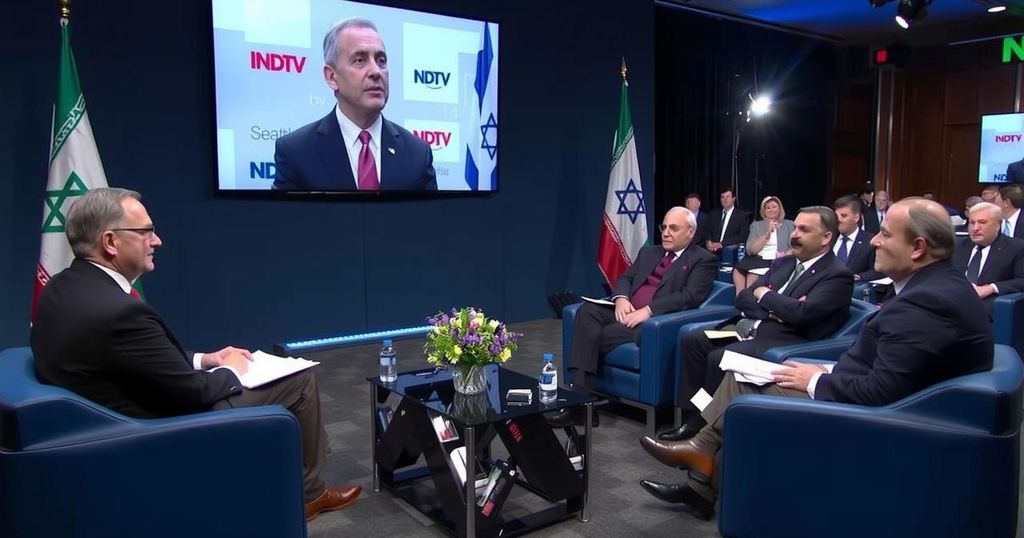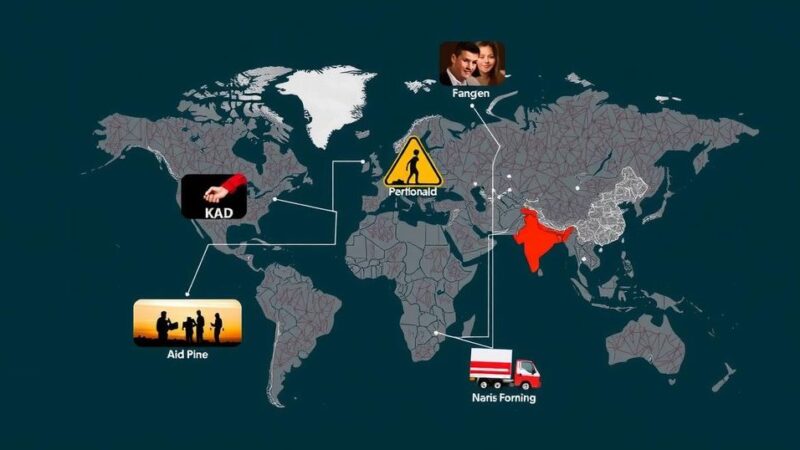At the NDTV World Summit, Israeli Ambassador to India, Reuven Azar, declared that Israel has both the right and the duty to retaliate against Iran following the missile attack on October 1. He emphasized Israel’s commitment to regional stability while condemning Iran’s aggression. The ambassador also recognized India’s increasing influence and potential role in the Middle East, asserting that Israel values its economic and diplomatic partnership with India as a pivotal component for future cooperation.
During the recent NDTV World Summit held in New Delhi, Israeli Ambassador to India, Reuven Azar, asserted that Israel possesses both the right and the obligation to retaliate following Iran’s missile assault of at least 180 missiles on October 1. Mr. Azar articulated Israel’s commitment to maintaining peace and stability in the region while emphasizing that an environment permitting Iran to launch attacks unchallenged is unacceptable. Responding to inquiries about the potential timing of Israel’s response to Iran’s aggression amidst the upcoming U.S. elections on November 5, the ambassador maintained that “the U.S. elections are not a factor. What is a factor is that we have not only a right but a duty to retaliate. Imagine a situation in which a country like Iran is capable of threatening any country in the region without any repercussions… this is completely unacceptable.” The ambassador elaborated on Israel’s desire for regional stability through peace agreements with neighboring countries, highlighting existing accords with Jordan, Egypt, and the normalization deals known as the Abraham Accords with the UAE, Bahrain, Morocco, and Sudan. Stressing the necessity of security, Mr. Azar remarked, “We cannot be in a situation in which the Iranians feel free to attack us at any point. This is why the security building block has to be complemented by our retaliation.” Further, Mr. Azar discussed Israel’s military success against Hamas in Gaza, stating that they have effectively neutralized the missile threats posed by the group by dismantling its missile manufacturing capabilities and securing the border to curb Hamas’ rearmament. The challenges of repatriating hostages taken during the October 7 attack were acknowledged, with ongoing efforts to support the Gazan populace while undermining Hamas’ control. The ambassador also addressed India’s rising stature on the global stage, particularly in the Middle East, asserting that India’s growing economy and strategic connections will play a vital role in regional stability and cooperation. “India is a rising power… it is going to be a powerhouse, a manufacturing hub, and it needs to be connected to the world,” he affirmed. Finally, Mr. Azar indicated that with enhanced connectivity, India is poised to significantly influence the dynamics within the region, bolstering mutual interests and fostering cooperative relations as the years progress.
Israel’s geopolitical landscape is marked by ongoing tensions with Iran and militant groups such as Hamas. The October 1 missile attack by Iran signifies an escalation in hostilities and places Israel in a position where it feels compelled to respond to ensure its security. Amidst these regional conflicts, India’s role as a rising power is increasingly recognized, particularly in fostering economic and diplomatic ties in the Middle East. The NDTV World Summit provided a platform to discuss these critical issues and Israel’s perspective on retaliation and regional cooperation as it navigates a complex geopolitical landscape.
In conclusion, Ambassador Reuven Azar’s statements at the NDTV World Summit underscore Israel’s commitment to self-defense in light of the recent Iranian missile attacks. He affirmed Israel’s right to retaliate as part of its responsibility to maintain peace and security in the region. Additionally, he highlighted the vital role India is poised to play in fostering stability and cooperation in the Middle East as it escalates its economic influence on a global scale. The evolving dynamics between these nations may shape future diplomatic relations and security frameworks within the region.
Original Source: www.ndtv.com






